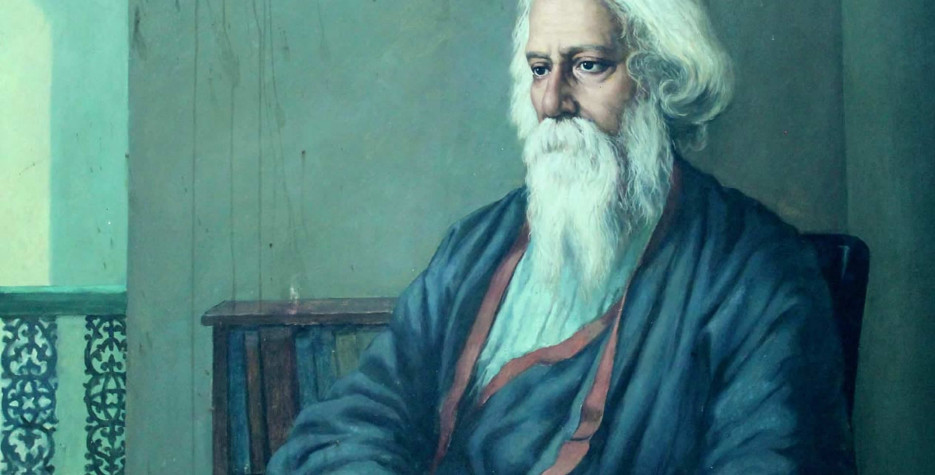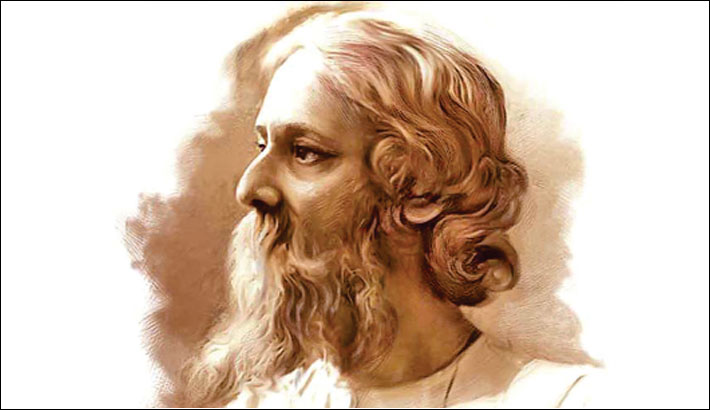Early Life and Education:
Rabindranath Tagore was born on May 7, 1861, in Kolkata, then Calcutta, into a prominent Bengali family. His father, Debendranath Tagore, was a respected philosopher and leader of the Brahmo Samaj, a reformist religious movement in Bengal. Growing up in an intellectually stimulating environment, Tagore imbibed a deep appreciation for literature, music, and art from an early age.
Tagore's educational journey was unconventional. He received a limited formal education but was well-versed in various languages, including Bengali, Sanskrit, English, and several others. His thirst for knowledge led him to become a voracious reader and a keen observer of life, which greatly influenced his creative pursuits.

Literary and Artistic Contributions:
Rabindranath Tagore's literary oeuvre is vast and encompasses poetry, novels, short stories, essays, and plays. His poetry, in particular, is celebrated for its lyrical beauty and philosophical depth. Tagore's most famous work, "Gitanjali" (Song Offerings), earned him the Nobel Prize in Literature in 1913, making him the first non-European to receive such an honor. The verses of "Gitanjali" resonate with themes of spirituality, love, and the universal human experience, captivating readers across the globe.
Apart from his literary achievements, Tagore was a prolific composer and musician. He composed over 2,000 songs, known as Rabindra Sangeet, which are an integral part of Bengali culture. His compositions reflect a deep connection with nature, spirituality, and the human soul, echoing the sentiments of a nation striving for freedom and identity.
Social and Educational Reforms:
Tagore's influence extended beyond the realm of art and literature. He was a visionary who believed in the transformative power of education and sought to create an environment that nurtured creativity and critical thinking. In 1901, he founded Santiniketan, an experimental school that later evolved into Visva-Bharati University. At Visva-Bharati, Tagore envisioned a holistic approach to education that combined academic learning with cultural immersion and community engagement. His educational philosophy emphasized the harmonious development of the body, mind, and spirit, paving the way for a new paradigm in Indian education.

Legacy and Impact:
More than seven decades after his passing in 1941, Rabindranath Tagore's legacy endures. His writings continue to inspire readers, his music continues to enchant listeners, and his educational ideals continue to shape institutions around the world. Tagore's universal message of peace, harmony, and humanism remains relevant in today's tumultuous world, serving as a beacon of hope and enlightenment for generations to come.
Conclusion:
As we commemorate Rabindranath Tagore Jayanti 2024, let us
reflect on the life and legacy of this extraordinary polymath. Let us honor his
contributions to literature, music, and education, and let us strive to uphold
the values of creativity, compassion, and social justice that he espoused
throughout his life. In celebrating Tagore, we celebrate not just a cultural
icon but a timeless source of inspiration for humanity.

